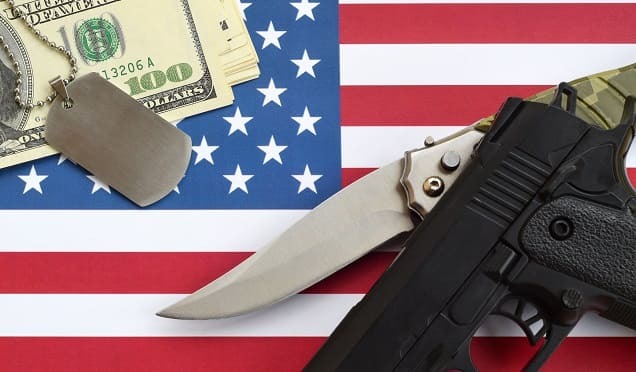
 Data Structure
Data Structure Networking
Networking RDBMS
RDBMS Operating System
Operating System Java
Java MS Excel
MS Excel iOS
iOS HTML
HTML CSS
CSS Android
Android Python
Python C Programming
C Programming C++
C++ C#
C# MongoDB
MongoDB MySQL
MySQL Javascript
Javascript PHP
PHP
- Selected Reading
- UPSC IAS Exams Notes
- Developer's Best Practices
- Questions and Answers
- Effective Resume Writing
- HR Interview Questions
- Computer Glossary
- Who is Who
What is the full form of CIA?
Introduction
Central Intelligence Agency (CIA) is the primary foreign Intelligence and surveillance organization of the United States government. which was initially established in 1947.

Just one of the director and deputy director positions at the CIA may be held by a military officer. The CIA is controlled by the Director of Central Intelligence or DCIA, who also acts as the director of national intelligence.
History and Evolution
Harry S. Truman's signed the National Security Act in 1947 which resulted in the establishment of the Central Intelligence Agency (CIA). Establishing a civilian intelligence agency in charge of gathering sensitive information for decision-makers came last among the major countries, with the United States being the exception. In fact, there was no civilian intelligence organization in the nation until 1942. The Office of Naval Intelligence, U.S. Army intelligence, and the FBI gathered information in a spontaneous manner. Other government agencies were infrequently informed of the data gathered, and sometimes even senior policymakers were not informed.
The National Security Act, approved by Congress in 1947, established the National Security Council, which oversaw the CIA. The CIA was given broad authority to carry out foreign intelligence operations and was tasked with providing the NSC with intelligence advice, coordinating and assessing other government agencies intelligence efforts, and conducting some other intelligence operations as the NSC must have required.
Functions and Responsibilities
A director and deputy director lead the CIA, and only one of them can be a military officer. All US intelligence collection operations were overseen by the director of central intelligence until 2004. Under the Intelligence Reform and Terrorism Prevention Act of 2004, a director and a deputy director of national intelligence were first appointed in 2005. They are in charge of coordinating the operations of all U.S. intelligence organizations, including the CIA. DCIs have come from various backgrounds, including the military, business, politics, and intelligence. The president's top intelligence advisor is the DCI, who frequently acts as a close confidant to the country's leader. Certain intelligence chiefs have been instrumental in influencing American foreign policy. The CIA supports the DCIA in performing the dutie
The Intelligence Directorate examines intelligence obtained openly from sources like the news media and quietly from spies in the field, including satellite photos, phone intercepts, and other communication methods. These studies make an effort to include information from all available sources. The majority of that activity during the Cold War was concentrated on the Soviet Union's military and military-industrial complex.
The Directorate of Operations is in charge of specific undercover and frequently illegal actions, such as disruption, as well as spying
The Directorate of Science and Technology is in charge of supervising the monitoring of foreign media, carrying out technical activities, and keeping the agency up to date on scientific and technological developments.
Controversies and Criticisms
The CIA has endured criticism for carrying out secret actions that are unethical or against international law, for keeping strong links with criminals and those who violate human rights, for failing to protect its own operations, and, starting in 2001, for kidnapping, terrorizing, and carrying foreign nationals against their will.

The CIA and U.S. military intelligence agencies helped smuggle former Nazi intelligence officials out of Europe during the early Cold War. The agency also collaborated with a number of former Nazis to carry out surveillance programs in Eastern Europe and the Soviet Union.
The CIA is sometimes depicted by its detractors as a lawless organization that carries out secret operations without the consent of the executive branch of the U.S. government. Contrary to what is stated, the executive branch must formally approve all secret activities. Plans for intelligence operations are given to the Senate and House committees that supervise CIA operations after receiving approval from the National Security Council.
Conclusion
The Office of Strategic Services from World War II was replaced by the Central Intelligence Agency or CIA, the main security organization of the United States, in 1947. The legislation restricts its operations to other nations; the Federal Bureau of Investigation is in charge of gathering intelligence on US land, which is illegal. It prepares studies for the National Security Council and is formally a division of the US Defense Department. Its finances are kept a mystery.
FAQs
Q1. How can one gather more information about the CIA?
Ans: Readers can discover more about the Central Intelligence Agency through an engaging timeline, significant objects, and stories in the CIA Gallery's online collection. On its website, the CIA publishes press releases, the latest news, talks, and the Asking Molly column.
Q2. What is the role of the Directorate of Administration in the Central Intelligence Agency?
Ans: The CIA's finances and personnel issues are handled by the Directorate of Administration. It also houses the Office of Security, which is in charge of finding CIA spies as well as maintaining the security of staff, facilities, and information.
Q3. What is the role of the National Security Agency?
Ans: The National Security Agency is a significant player in the intelligence community and, by necessity, demands a high level of anonymity.

